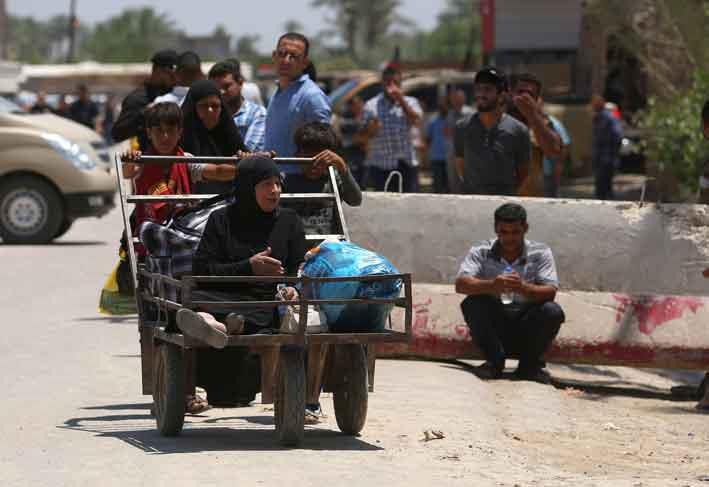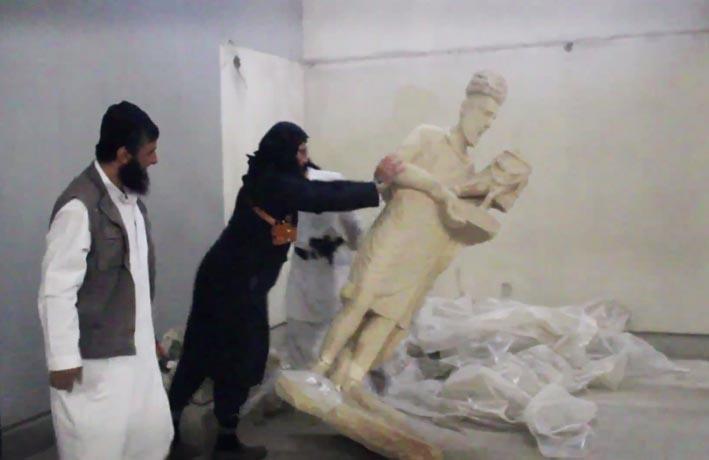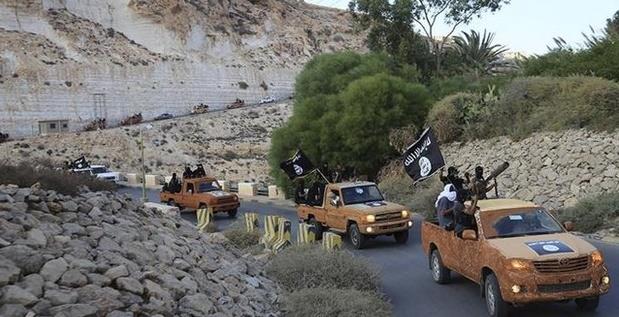Islamic State extremists can pose “a very serious threat” to divided Libya if rival governments there fail to reach a unity deal quickly, the United Nations envoy to the North African country said yesterday.
Bernadino Leon, who is mediating political talks, told a regional conference of the World Economic Forum that he hopes for a deal before the start of the Muslim fasting month of Ramadan in mid-June.
Libya has fragmented since the capital of Tripoli was overrun last year by Islamist-allied militias who set up their own government and parliament there while Libya’s internationally recognised government withdrew to the east of the country.
The UN mediator said his latest draft for a unity deal has been accepted by the eastern-based government, while some in the Tripoli camp have recently come out in support of a national dialogue. He said this has given him some hope a deal might be possible, though he stopped short of saying he was optimistic.

Leon said the rise of Islamic State extremists in Libya “can become a very serious threat for the Libyans” and the international community if unity talks fail. He said extremists have grown from a few small groups six to eight months ago to more than 2,000 loyalists.
Islamic State “has a strong capacity in Tripoli” and a significant presence in Sirte, the birthplace of the late Libyan dictator Moammar Gadhafi, who was ousted and later killed by Libyan rebels in 2011.
Pro-government forces killed in eastern Libya fighting
A total of 19 Libyan soldiers were killed over 24 hours this week in the eastern city of Benghazi, during a new Libyan army push to retake the city from Islamic militants, officials said on Thursday. Elsewhere in Libya, a local Islamic State affiliate claimed responsibility for a pair of suicide bombings.

In Benghazi, army chief Gen. Khalifa Hifter is seeking to break months of stalemate and fully retake Libya’s second largest city. His offensive has primarily targeted the militant stronghold district of al-Laithi and government jets bombed multiple positions overnight and early Thursday morning, a military official said.
In the western city of Misrata – whose militias compose the most powerful militias in control of the capital, Tripoli – a suicide car bomber attacked a checkpoint 60 kilometres east of the city killing one soldier and injuring three, a witness said. In a short statement posted on social networking sites, an Islamic State affiliate in Libya claimed responsibility for the attack. A day earlier, IS also claimed responsibility for a second suicide bombing near the central city of Sirte – one of the group’s strongholds — in which a bomber detonated his device at a checkpoint near the town of Hawara, killing one soldier.
Nearly four years after longtime dictator Muammar Gaddafi was ousted, Libya is consumed by chaos. The country split is between an elected parliament and weak government, which were forced to relocate from Tripoli to the far eastern cities of Tobruk and Bayda, and a rival government and parliament in Tripoli set up by the Islamist-linked militias that control the capital.
The turmoil has enabled the rise of an active Islamic State branch, which now controls at least two cities along the country’s coastline.

The nationwide instability has also heavily affected Libya’s vital petroleum industry. Oil output is now estimated at 430,000 barrels a day, down from 1.6 million in 2010.
During a meeting on Wednesday night, the militia-backed Tripoli parliament announced it would eliminate all subsides on fuel and foodstuffs, instead replacing them with a cash stipend of 50 dinars (about €18) per citizen per month.
The end of government subsides is designed to save the government billions. A 2014 report by a government auditing agency stated that spending on subsides consumed around $9.3 billion per year, more than a third of the national budget.
It’s not yet clear how the Tripoli-based authorities will enforce the new policy in the large sections of the country outside their control.
Hatem al-Aribi, a spokesman for the internationally recognised parliament in Tobruk, described the decision as another “stunt” by the rival parliament to “rally more support”.